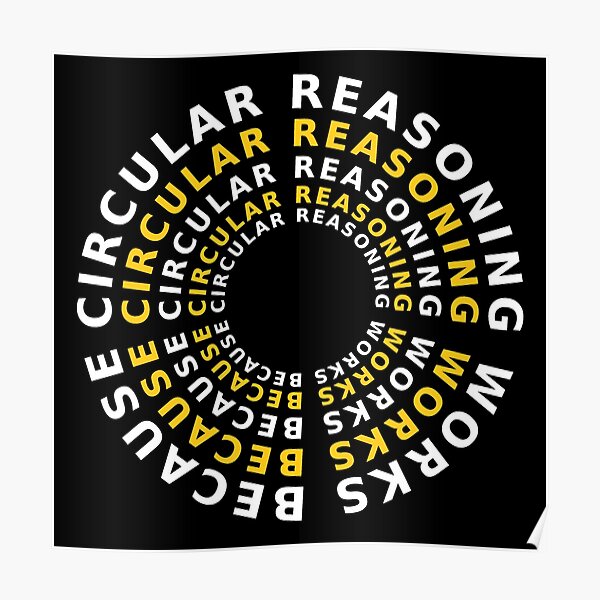What is a logical fallacy? It is an error in logic, an unsound argument, a misleading notion, or a mistake in thinking. Fallacies often involve drawing false conclusions from facts that they distort or manipulate, or just opening an irrelevant argument to distract the opposing party from the issue at hand. A fallacy may sound convincing, but it’s actually flawed reasoning. People often resort to fallacies, intentionally or otherwise, when they are losing a debate and can’t think of good evidence for their point of view.

If you are interested in the world of ideas, it is important to be able to recognise a fallacy when you see one, and avoid using them yourself. In this article, we will explore some of the most common logical fallacies, providing clear explanations and relatable examples to help you understand them better. By familiarizing yourself with these fallacies, you can strengthen your reasoning skills and avoid their pitfalls, and become a better debater.
So let’s dive in!
Red Herring
A red herring is a logical fallacy in which you present irrelevant information alongside relevant information, distracting attention from the actual issue or argument.
Harry: “I believe the Mister Bristles toothbrush is the best brand. It has soft bristles, an ergonomic handle, and gives an advanced clean.”
Hailey: “Yeah, but have you considered the importance of toothpaste? No matter what toothbrush brand you use, the right toothpaste is crucial for maintaining good oral health.”
In this example, Harry asserts his argument for why he prefers a specific toothbrush brand, highlighting its features and cleaning technology. Instead of addressing Harry’s claim about toothbrush brands, Hailey makes a red herring by shifting the focus to toothpaste. By pointing out the importance of toothpaste, she diverts the discussion away from its original purpose, which was toothbrush brands. Hailey’s reasoning is flawed. Harry never said that toothpaste wasn’t necessary, so Hailey is basically debating against an imaginary claim.
Straw Man
This common fallacy appears when a position is exaggerated or distorted in order to make it easier to refute.
Jim: “It isn’t good to watch too much television.”
Tim: “So, you’re saying that TV should be banned? There is not a single TV show worth watching? I’m sorry, but I can’t agree with that.”
Jim cautions against too much TV watching. Instead of arguing back the reasons why he disagrees, Tim simply exaggerates Jim’s claim into an extreme position to make it easier to attack. Straw man is similar to the red herring fallacy – it introduces and attacks a position which nobody really believes in.
False Dilemma
The false dilemma basically claims that there’s only two (extreme) options – either A, or B, when in fact there are other ways.
“Either you study logic, or you’re an idiot and know nothing.“
The speaker is claiming that you must study logic, because the “only other option” of being an idiot is so terrifying and so absurd that we are forced to choose the first plan and learn logic. But once we realise there are more than two choices, we can see how flawed this reasoning is. It oversimplifies education, asserting that logic is the only way to acquire knowledge, when there are many more paths available. It is important to consider a broader range of possibilities and avoid falsely presenting only two mutually exclusive choices.
Special Pleading
This fallacy occurs when a double standard is introduced.
Hailey: Yes, I agree that we should all brush our teeth daily to avoid gum disease and cavities, but you see, I am often really busy. So, I shouldn’t have to brush my teeth like everyone else.
Hailey makes the special pleading fallacy. She acknowledges the general expectation of daily tooth brushing but makes an exception for herself because she is “busy”. She says she should be exempt, without providing a valid reason. Hailey might be busy, but she can still suffer from gum disease or cavities if she fails to practice good oral hygiene. Her reasoning is flawed.
Ad Hominem
Ad hominem means “to the man” and is the personal attack fallacy: instead of addressing the opponent’s argument, ad hominem attacks their person.
Jim: “It isn’t good to watch too much television.”
Tim: “Why should we listen to you? You are just saying that because you have no friends and you want people to join your stupid chess club.”
Do you see what Tim is doing? He’s making no argument against Jim’s advice, but is merely attacking Jim as a person. That’s not good reasoning at all! To have a productive argument, it’s important to focus on substance of the argument, and not the person’s character and suspected motives. This fallacy is often made in debates, particularly political ones.
Circular Reasoning
The circular reasoning fallacy is basically saying that A equals B, because B equals A.
Mum: “Don’t play with your food, Tommy.”
Tommy: “Why not?”
Mum: “Because playing with food is something you shouldn’t do.”
Notice how Mum doesn’t offer any evidence as to why it’s bad to play with food, she simply said Tommy shouldn’t, because he shouldn’t! She creates a circular loop where the reason behind the rule is simply restating the rule itself in different words. Instead of this, Mum could have explained the reasons behind her instruction, such as maintaining good table manners or minimizing waste, but instead it appears she took an easier and lazier shortcut.

Tu Quoque
Tu quoque (meaning “you too”) is a type of logical fallacy that occurs when someone tries to dismiss or discredit an argument by pointing out the hypocrisy or inconsistency of the person making the argument, rather than addressing the argument itself.
Jim: “It isn’t good to watch too much television.”
Tim: “Oh, right, says somebody who watches it 4 hours a day.”
Tim is committing the tu quoque fallacy. Instead of addressing the issue of whether too much TV is a problem, Tim merely points out that Jim watches a lot of TV himself. But if Jim is a TV addict, he might have good first hand knowledge of why it is a problem. Perhaps Tim could benefit from the warning.
Conclusion
There are many other logical fallacies to watch out for; these are just some basics. It is important to focus on the specific task or issue at hand rather than engaging in personal attacks or attempting to avoid the issue by using a logical fallacy. Constructive communication and finding a solution to the current situation should be the primary objective.
Whether you are speaking or writing, try to watch out for flawed reasoning, and be careful with your own language. Tempting as they may be, logical fallacies won’t help you win arguments, they will just show the other person that you don’t know what you’re talking about. Avoiding logical fallacies helps to demonstrate your commitment to sound reasoning and thoughtful dialogue.
Healthy Friendships
Critical Thinking
Law and Rights
Homeshool
Hobbies
Freedom
Reading Stories
